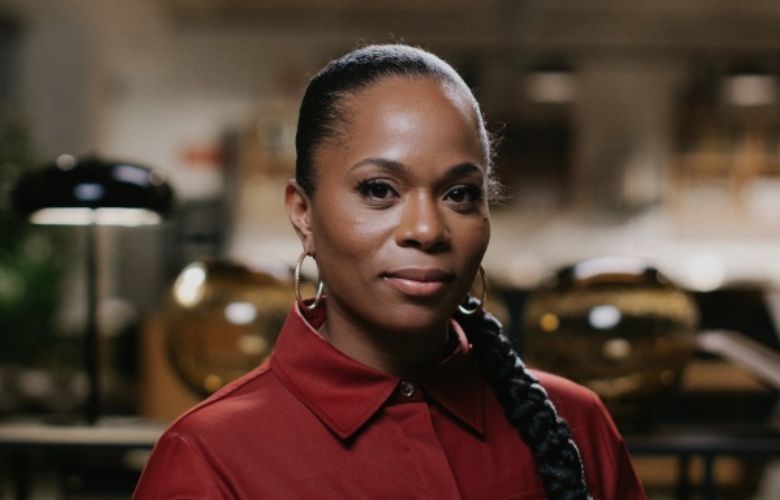
An inquiry into misogyny in music has been undertaken by the House of Commons Women and Equalities Committee. Following the increase of more conversations around the issue, the inquiry aims to examine what misogynistic attitudes exist in the industry and why.
It aims to uncover, in more detail, how these attitudes can filter through to society, impacting attitudes towards and treatment of women and girls, including at live music events. This inquiry will explore what steps can be taken to improve attitudes and treatment of women working in music. This inquiry is part of the committee’s work into Preventing Violence Against Women and Girls. Read the call for evidence for more detail about the inquiry
The first parliamentary evidence session took place on Wednesday 26th October, where MPs heard that the music industry is not making as much progress as the film industry in the wake of the #MeToo movement. Expert criminologist Dr Cassandra Jones spoke about her findings, saying of the women in the inquiry:
“Of the 20% who did report misogyny in the music industry, nothing would happen. In some instances, their career was hurt, and they were issued with a non-disclosure agreement or a cease and desist. So, when that happens to one woman and then another woman sees this, they’ll often think, ‘well why should I report, look what happened to her’.”
There is currently “no accountability for perpetrators”, and that there “needs to be something that oversees or scrutinises or monitors the music industry that has legal statutes behind it”.
Additionally, there is the need to acknowledge intersectionality within misogyny when it comes to protecting women of colour. Charisse Beaumont is the Chief Executive of the Black Lives in Music initiative, and she highlighted the imbalance in agreement with Dr Jones’ observation that there is a lack of consequences. Emphasising the fact that less than 5% of music producers are female, Beaumont stated:
“I think there could be more signposting, more obvious ways of showing that there will be a consequence for the perpetrator and that you’re going to be protected and safe.”

Noting that Black women are discriminated against twice, Beaumont announced that an industry-wide anti-racism code of conduct will be launching in association with the Independent Standards Authority. Set to debut in the spring of 2023, the aim is to raise standards, tackle discriminatory behaviour and micro-aggressions, support staff and provide mandatory anti-racism training, as well as investigating equal pay and contracts, career progression, and representation for artists and technical and production workers.
The MU, which is the leading trade union organisation in the UK, has responded to the findings and the meeting, by making the following recommendations going forward:
Our response to the House of Commons (HoC) Women and Equalities Committee ‘Misogyny in Music’ Inquiry detailed our members lived experiences of misogyny and sexism whilst working in the UK music industry, and was informed by a snapshot survey of female and non-binary members that we conducted during June 2022.
Our response covered key themes of:
We also made the following recommendations to the music industry and Government to tackle the issues the submission raised.
MU General Secretary Naomi Pohl says:
“It may be tempting to think of the quotes and anecdotal data used throughout the MU’s submission as extremes or exceptions. However, this is far from the case. In fact, they represent only a small fraction of the many stories the MU hears of misogyny, sexism and abuse in the music industry directed at women.
Whilst misogyny, sexism and abuse are not unique to the music industry, there are some factors to consider that make these behaviours more likely and much harder to tackle in music. For example, freelance working that relies on networks for opportunities, a dominance of men in decision making roles, informal working environments and a power imbalance in relationships.
The MU will continue to work towards creating a music industry that is free from discrimination, bullying and harassment and hopes that our submission to the inquiry contributes to tackling the issues it raises.”
Just days after the parliamentary meeting, The Guardian published statistics that found almost 1,000 references to dehumanising misogyny or violent action are recorded each day in the global “incelosphere”. The UK’s Home Office, security and intelligence agencies are currently funding research into the “growing threat posed by male supremacist ideology”. Additionally, The Guardian’s findings included police figures revealing that more under-18s were arrested for terrorism offences in the last year than ever before, and the publishing of new safeguarding guidance from the Department for Education which included involuntary celibates terrorising women and girls.
The misogyny in music inquiry is set to continue into 2023, with more evidence to be presented in parliament in the coming year.
Accessibility At The Smith Center Series: Part One
James “Fitz” FitzSimmons Interview: The Boys In The Band On Netflix


Michelle is a musician and composer from the UK. She has performed across the UK and Europe and is passionate about arts education and opportunities for women and girls.
Read Full Profile© 2021 TheatreArtLife. All rights reserved.

Thank you so much for reading, but you have now reached your free article limit for this month.
Our contributors are currently writing more articles for you to enjoy.
To keep reading, all you have to do is become a subscriber and then you can read unlimited articles anytime.
Your investment will help us continue to ignite connections across the globe in live entertainment and build this community for industry professionals.